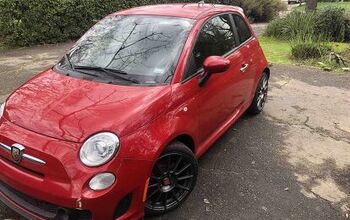Federal Probe Covers 12.3 Million Vehicles; Airbags May Not Deploy in a Crash

The National Highway Traffic Safety Administration has launched an investigation into a slew of late-model vehicles equipped with airbags that may not protect occupants in the event of a crash. The vehicles, built by American, Japanese, and Korean automakers, were all manufactured between 2010 and 2019.
According to the NHTSA, the faulty airbags may be responsible for eight deaths.
The automakers in question are Fiat Chrysler Automobiles, Honda Motor Co., Hyundai Motor Co., Kia Motors Corp., Mitsubishi Motors Corp., and Toyota Motor Corp. The NHTSA claims the fault lies in an airbag control unit supplied by TRW Automotive Holdings Corp., since acquired by ZF Friedrichshafen.
According to documents released by the federal agency, the airbags in affected vehicles can fail to deploy. Essentially, the crash itself causes a flurry of electrical signals that can disable the airbag control circuit, leading to no “go” signal for the airbag. The NHTSA began a preliminary evaluation last year, upgrading its probe to an engineering analysis in April of this year.
From the Associated Press (via CNBC):
So far, only Hyundai and Kia and Fiat Chrysler have issued recalls in the case. Four deaths that may have been caused by the problem were reported in Hyundai-Kia vehicles and three in Fiat Chrysler automobiles. NHTSA opened an investigation in March of 2017 involving the TRW parts in Hyundais and Kias.
The upgrade came after investigators found two recent serious crashes involving 2018 and 2019 Toyota Corollas in which the airbags did not inflate. One person was killed.
Last year, Hyundai and Kia recalled a total of 1.1 million vehicles to address the problem, while FCA recalled 1.9 million vehicles in 2016.
At this point, NHTSA investigators aren’t sure just how likely an airbag failure could be. Many vehicles have already been recalled, and the agency hasn’t been able to find any instances of airbag failure in Kia, Hyundai, or FCA vehicles not subject to those recalls. As well, finding cases of electrical interference in Toyota, Honda, and Mitsubishi vehicles has so far proved fruitless.
Further tests will be conducted to see if electrical interference, or perhaps some other factor, can cause the TRW-ZF units to fail.
[Image: Toyota]

More by Steph Willems
Latest Car Reviews
Read moreLatest Product Reviews
Read moreRecent Comments
- IBx1 It’s clear they smash these into walls front and rear before they leave the factory, so what do they build that wall out of to achieve such consistent results?
- THX1136 You folks did read the article, right? 7 stations have been built so far (not near enough of course) which equals 18 chargers (not near enough either). Still agree with jkross - the government rarely does things exceptionally well. This is but one more example.
- Carson D I disagree. Biden's graft is allowing his biggest donors to pay for all of the pro-Hamas protests 'spontaneously and organically' popping up on college campuses across the country.
- JTiberius1701 Well we are speaking of Miami Beach...
- Mike Beranek Gee, it's almost as if the whole thing was a fraudy, scammy farce. But that couldn't be true, right?

































Comments
Join the conversation
This article would have been 1000x more useful if the models in question were listed.
Would have been interesting to juxtapose the number of people killed by their air bag and what those vehicles might be?